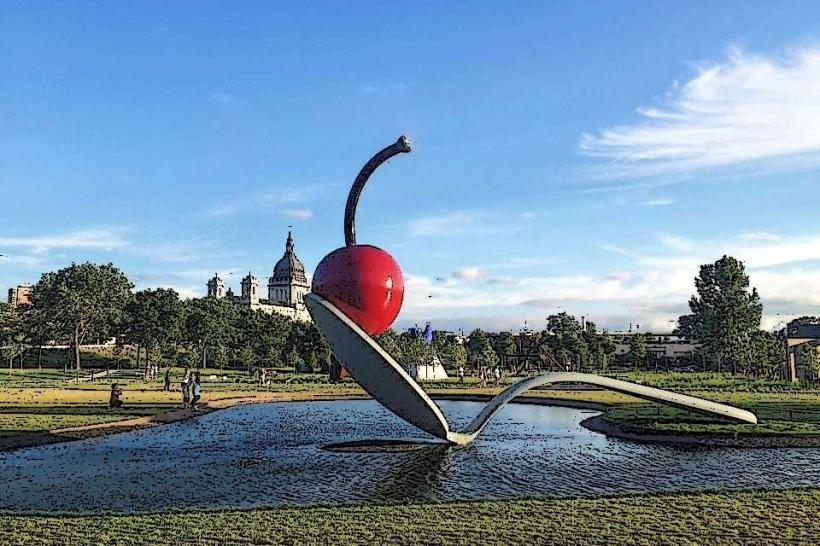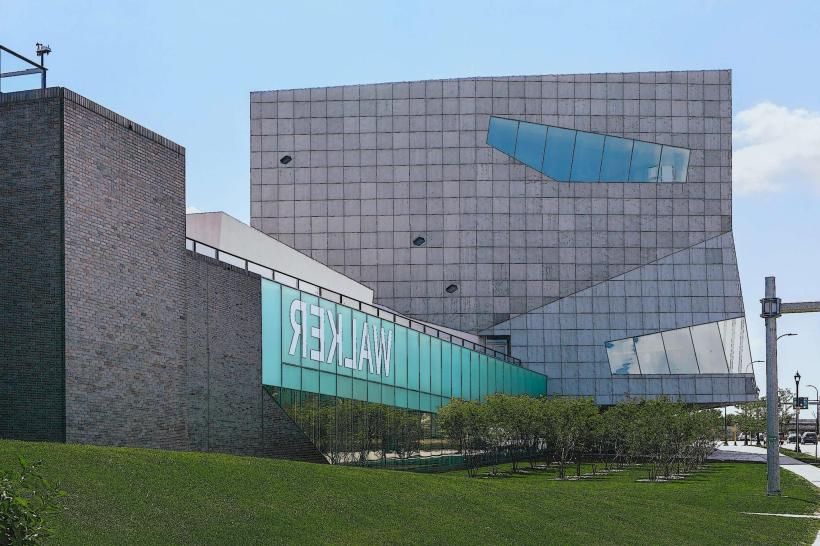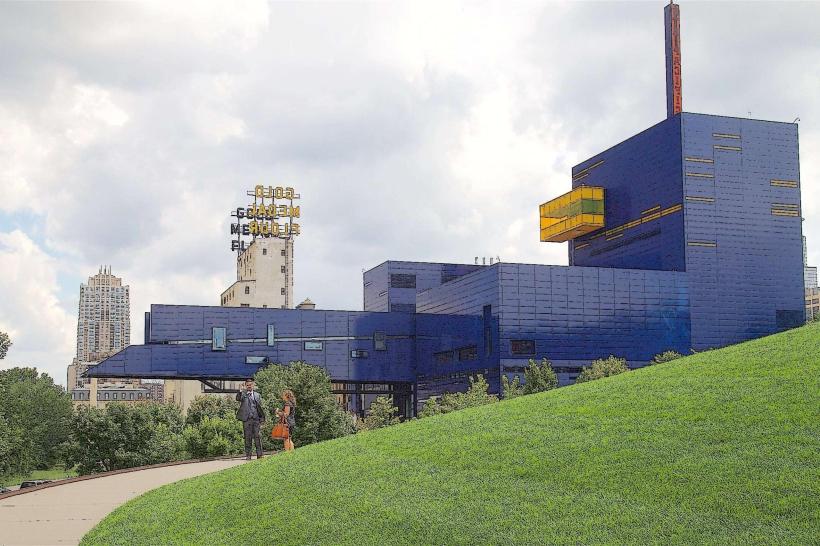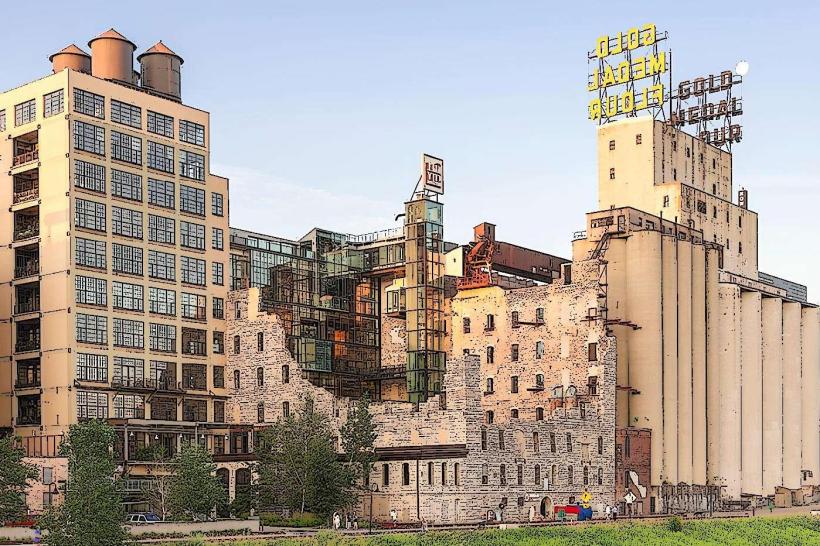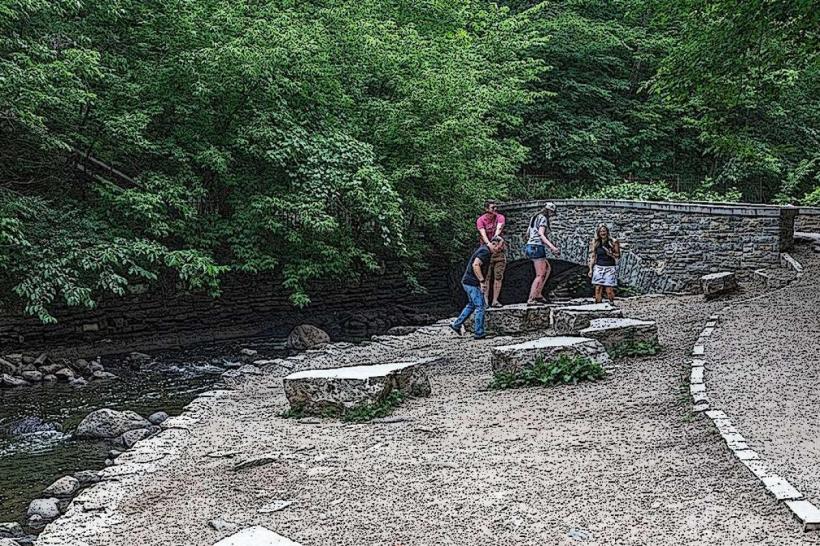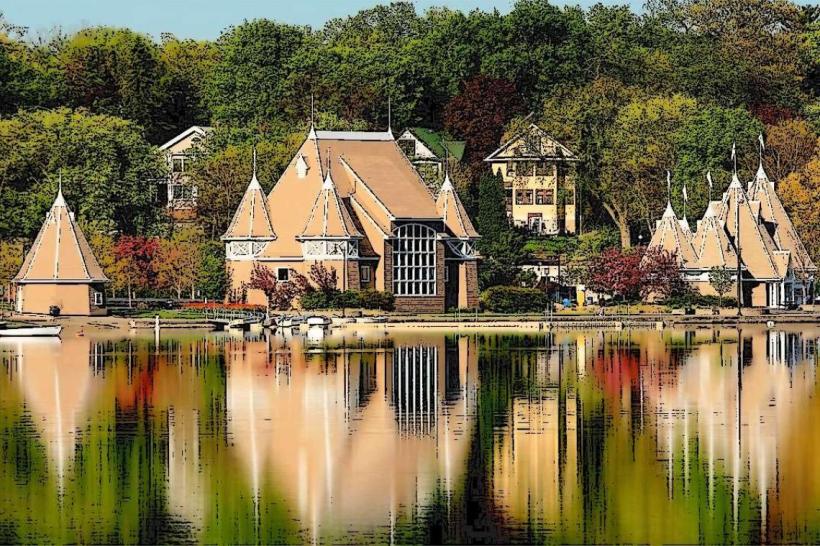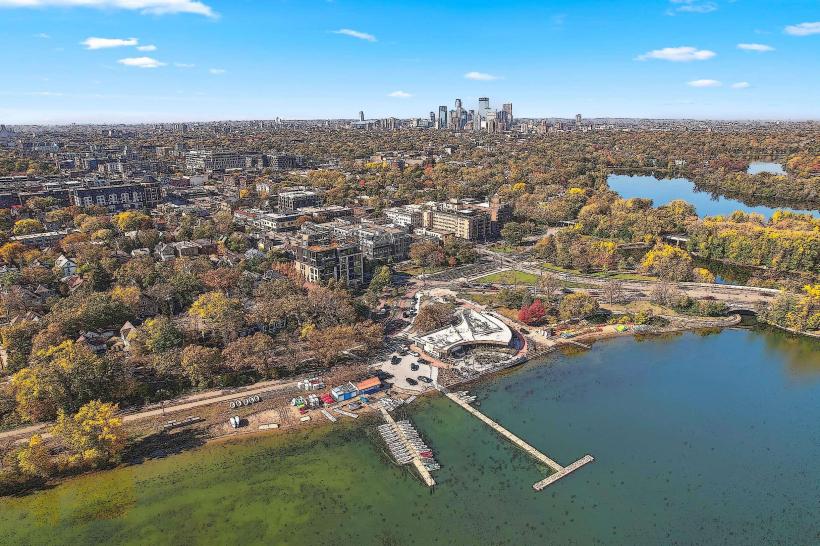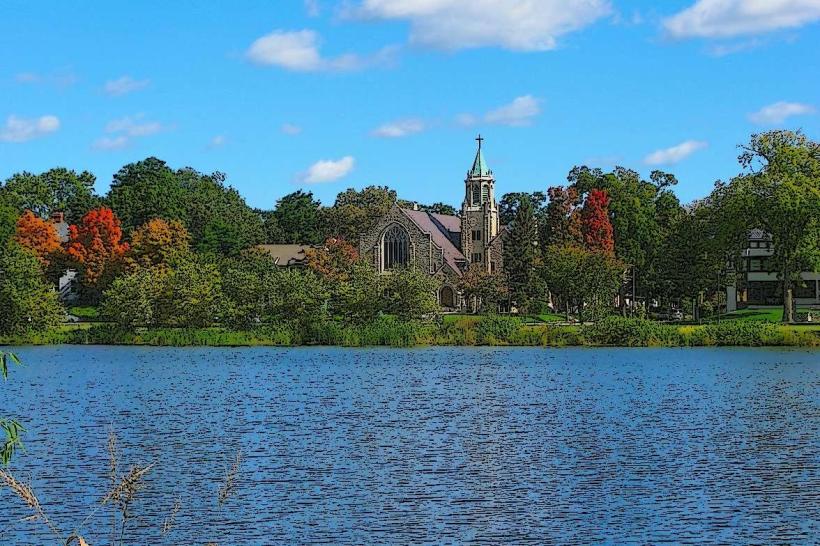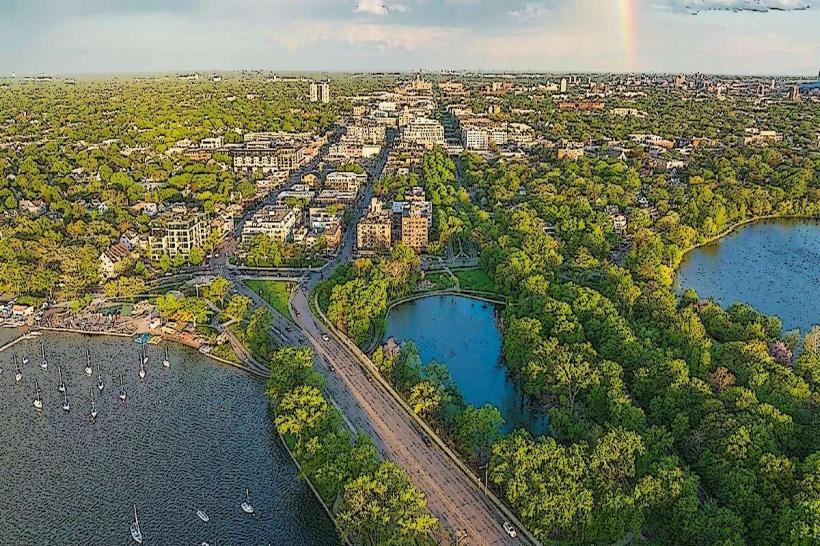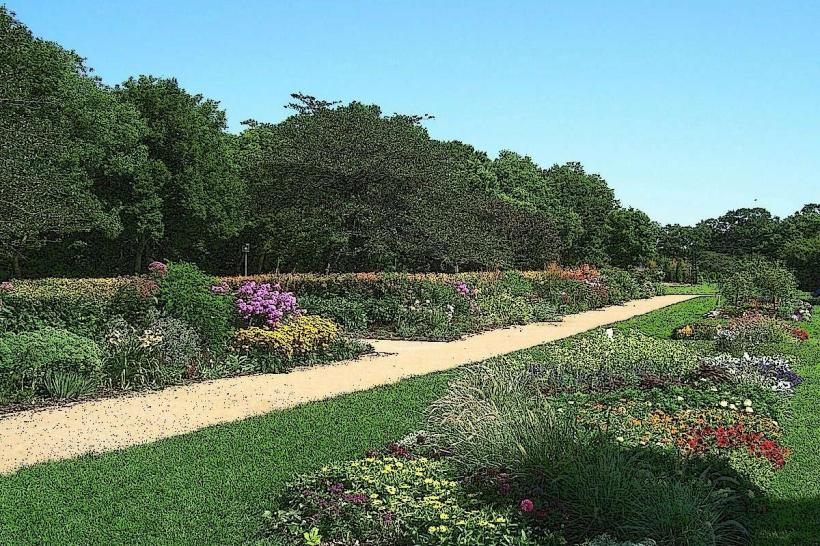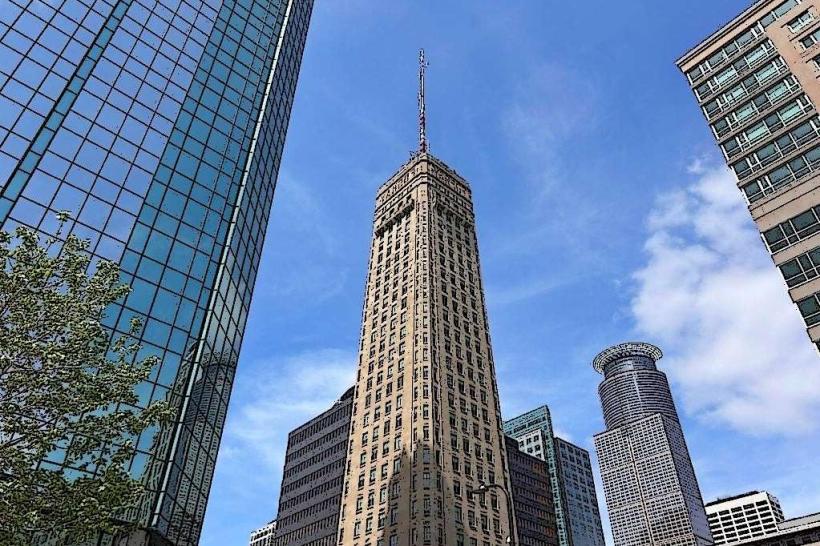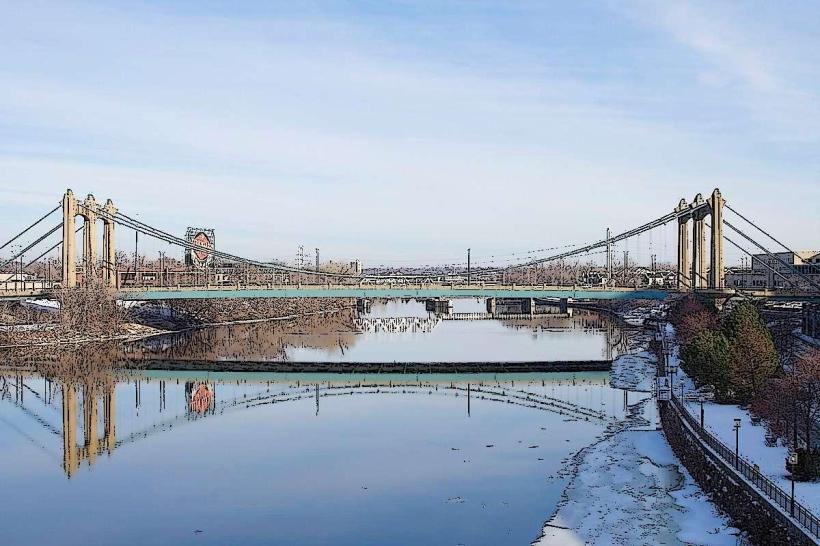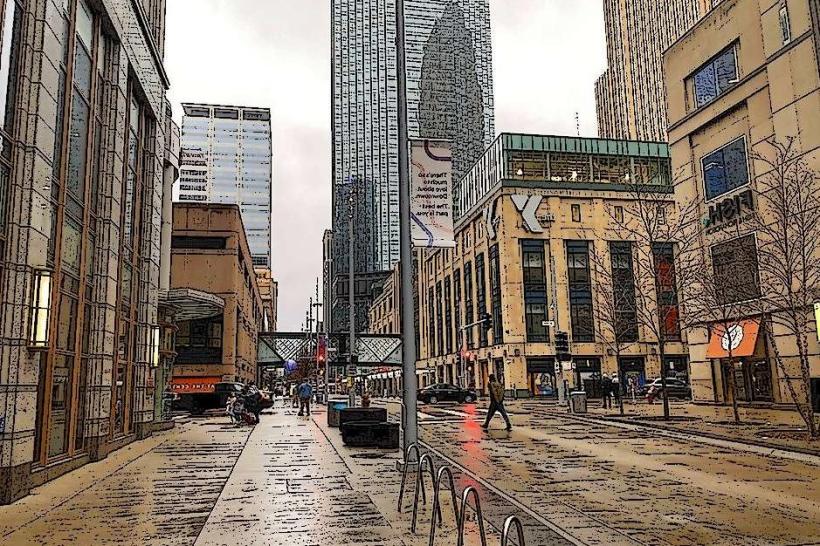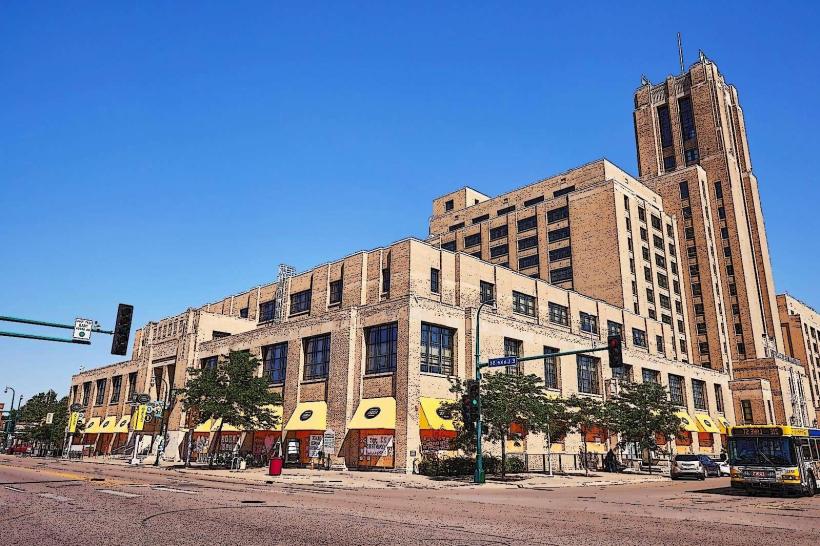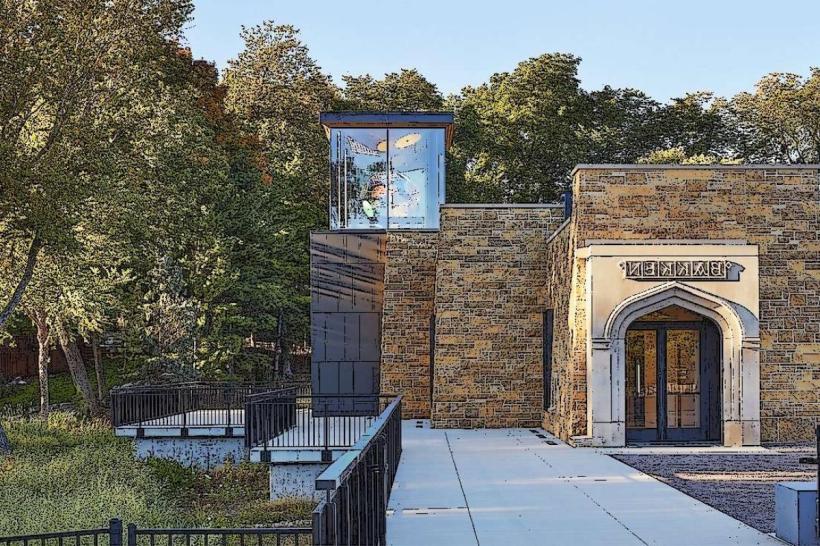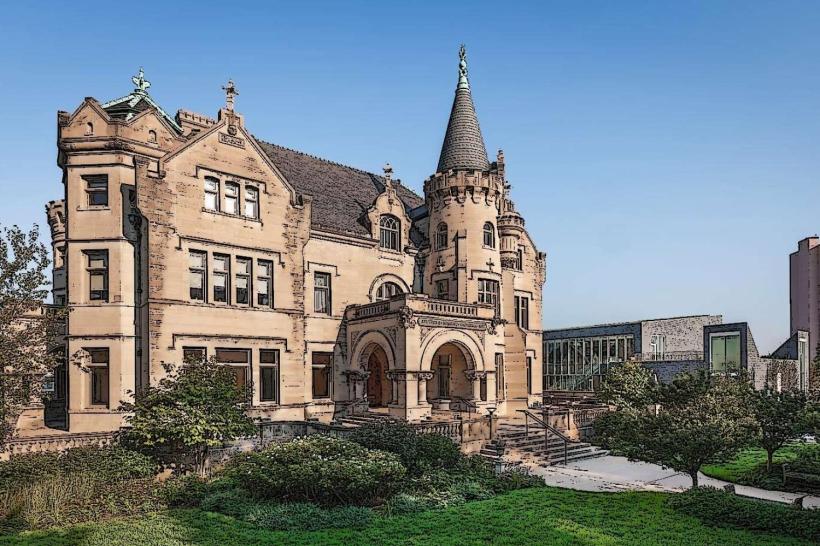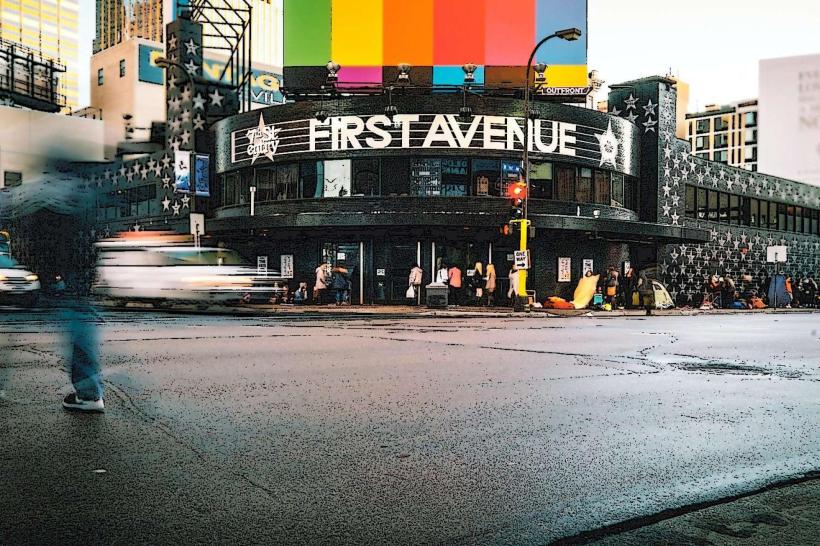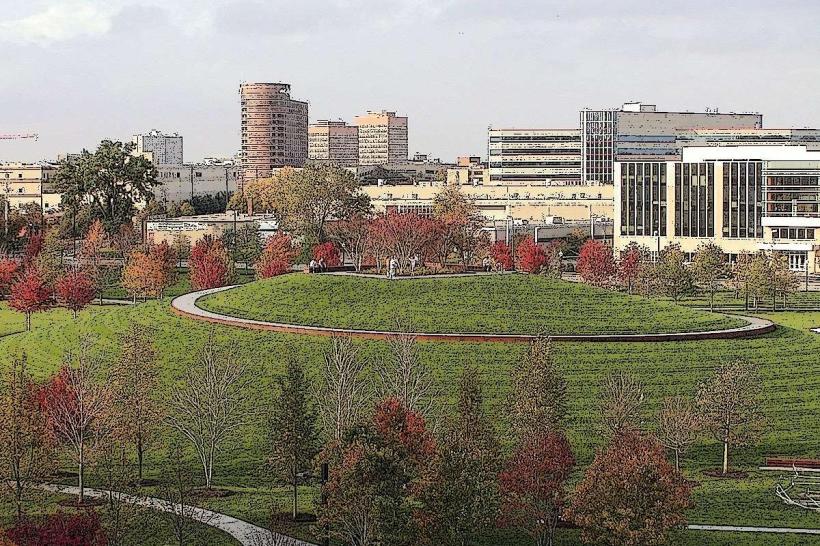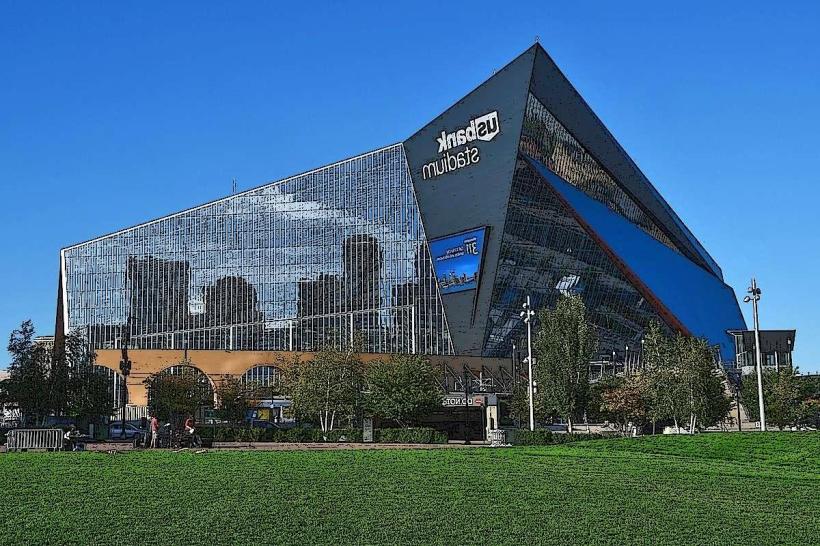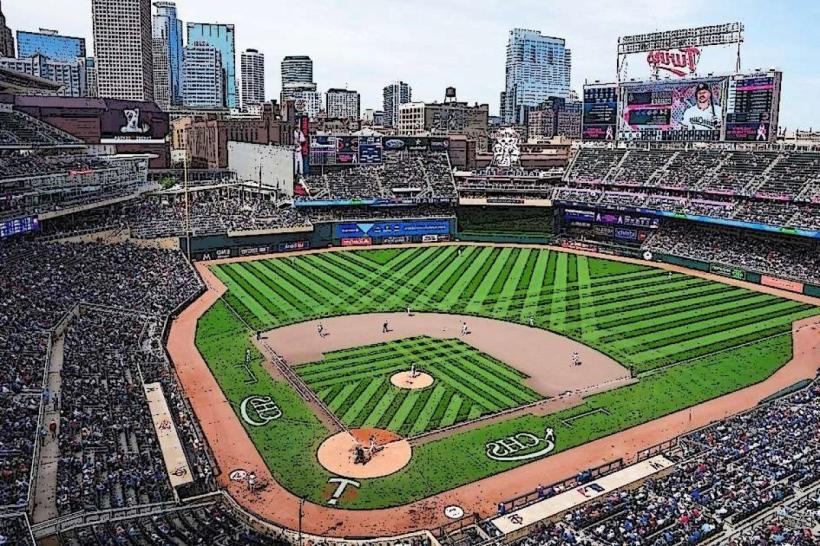Information
Landmark: Basilica of Saint MaryCity: Minneapolis
Country: USA Minnesota
Continent: North America
Basilica of Saint Mary, Minneapolis, USA Minnesota, North America
The Basilica of Saint Mary, located in the Loring Park neighborhood of Minneapolis at 88 17th Street North, is a landmark of profound religious, architectural, and cultural significance. It holds the distinction of being the first church in the United States to receive the title of a minor basilica, granted by Pope Pius XI in 1926, setting it apart as a pioneering institution in American Catholic history.
Architectural Design and Construction
Designed by the French-American architect Emmanuel Louis Masqueray, the Basilica was constructed between 1907 and 1914, with interior work continuing through 1925. Masqueray was a prominent figure known for blending Beaux-Arts principles with classical and Renaissance influences, which is evident in the Basilica’s harmonious proportions and grand scale.
The building’s foundation and exterior walls are constructed of durable Rockville granite and white Vermont granite, lending the structure a stately and luminous presence. The façade is dominated by a large colonnaded portico that invites visitors into the sacred space. Above the entrance sits a striking 15-foot-diameter rose window crafted from stained glass, which bathes the interior with colorful, diffused light.
Inside, the Basilica’s vast nave accommodates nearly 3,000 worshippers, making it one of the largest sacred spaces in the region. The interior is marked by soaring marble columns and a barrel-vaulted ceiling rising 82 feet above the floor. The ceiling and walls are adorned with a carefully chosen color palette-white, blue, red, and gold-that symbolizes purity, truth, love, and glory, reflecting the virtues associated with the Virgin Mary.
The sanctuary is crowned by a magnificent dome soaring 138 feet above the floor and topped by a lantern and a bronze cross, reaching an overall height of 200 feet. This dome creates a majestic focal point that draws the eyes upward in a traditional gesture of spiritual elevation.
Throughout the Basilica, 60 stained glass windows narrate biblical stories and saintly virtues, contributing to the contemplative atmosphere. The meticulous craftsmanship and attention to symbolic detail reinforce the Basilica’s role as both a house of worship and a masterpiece of sacred art.
Historical and Cultural Significance
The Basilica of Saint Mary was commissioned by Archbishop John Ireland to replace the earlier Church of the Immaculate Conception, which had become impractical due to Minneapolis’s expanding warehouse district. Construction began in 1907 amid a period of growth and optimism in the city, reflecting the Catholic Church’s commitment to serving a burgeoning urban population.
In 1926, the Basilica was designated as a minor basilica by the Vatican, a rare honor that recognized its architectural distinction and importance as a center of Catholic life in America. The formal consecration took place in 1941 during the Ninth National Eucharistic Congress, underscoring its national religious prominence.
The Basilica was added to the National Register of Historic Places in 1975, further acknowledging its significance as an architectural landmark and its well-preserved Beaux-Arts design. The church continues to serve as a vital spiritual home while also functioning as a cultural hub within Minneapolis.
Religious and Community Life
Beyond its architectural grandeur, the Basilica is an active place of worship and community gathering. It hosts regular Masses, including weekday services and special liturgical celebrations. The Saint Joseph Chapel within the Basilica provides an intimate setting for daily Mass and private prayer.
The Basilica’s role extends into the arts through its support of various musical ensembles such as the Basilica Cathedral Choir and the Schola Cantorum. Its renowned pipe organ, installed in 1949 and refurbished in 2008, is one of the finest in the region, boasting 82 ranks of pipes. The Basilica also nurtures an artist-in-residence program and collaborates with local arts organizations, making it a vibrant cultural institution.
Visiting the Basilica
Visitors to the Basilica of Saint Mary can explore the church during its open hours, typically from 9:00 AM to 5:00 PM Monday through Friday. Free parking is available on weekends and during funerals, while weekday parking is offered at a modest fee with discounts after 5:00 PM. Additional parking can be found nearby at the Minneapolis College parking ramp.
The Basilica offers both self-guided tours and docent-led tours, with the latter available on Sundays after major Masses and by appointment on weekdays. These tours provide in-depth insights into the Basilica’s architecture, history, and art, enhancing visitors’ appreciation of the space.
Summary
The Basilica of Saint Mary stands as a testament to Minneapolis’s rich religious heritage, architectural elegance, and community vitality. Its harmonious blend of Beaux-Arts design, exquisite craftsmanship, and symbolic artistry creates a sacred space that inspires awe and reflection. As the nation’s first minor basilica, it holds a unique place in American Catholicism and continues to be a beacon of faith, culture, and history in the heart of Minneapolis.

